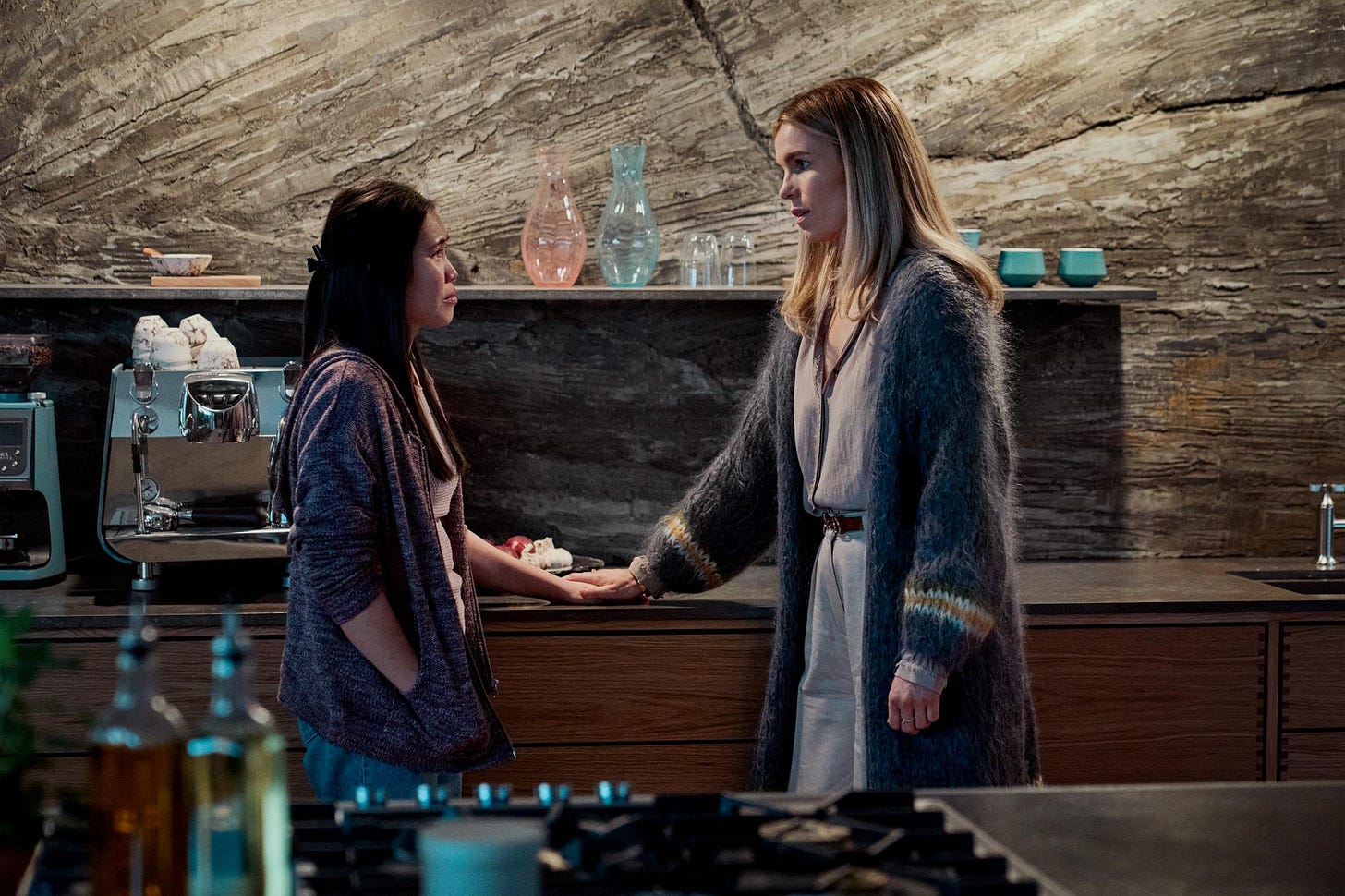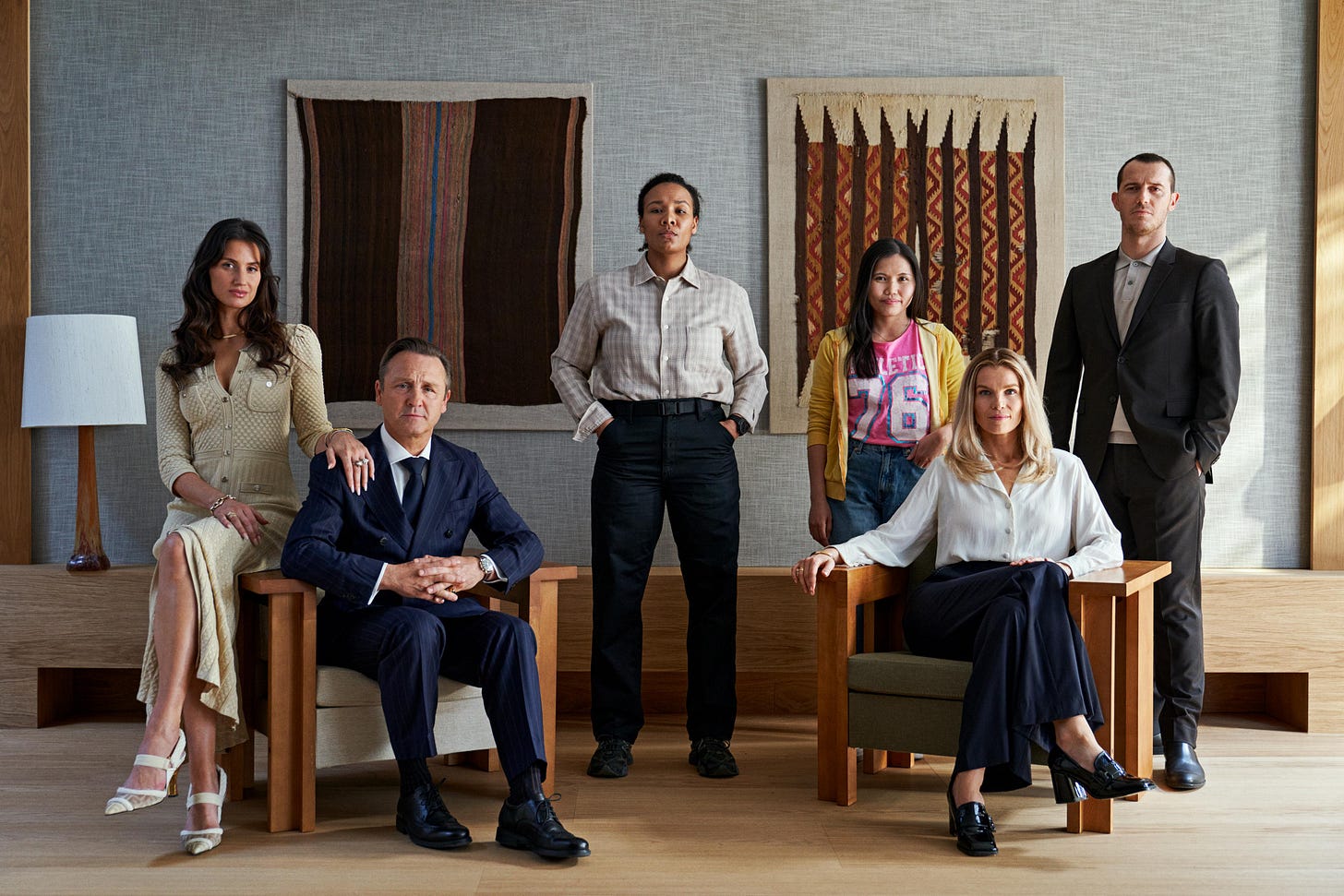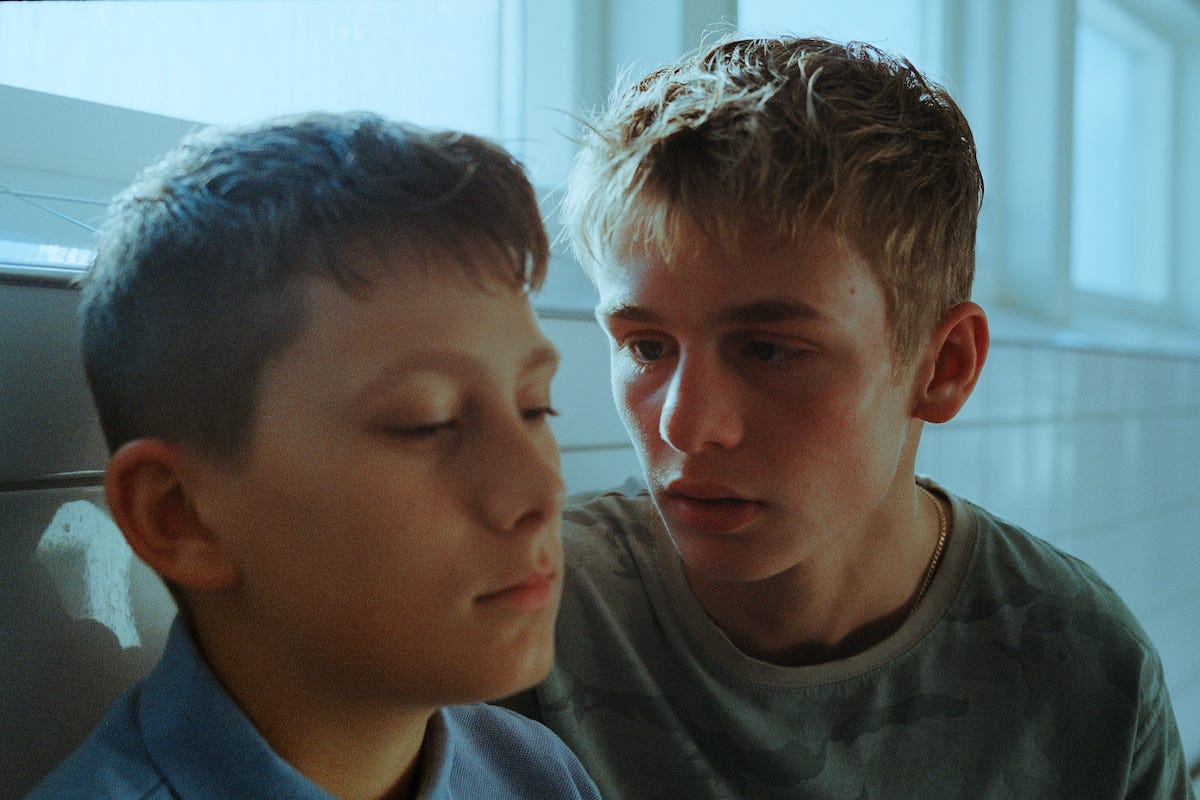A Danish TV series about class and masculinity
If you liked Adolescence, you're going to like this too.
The most-read episodes of this newsletter so far have been the ones about Adolescence and the one about the third season of The White Lotus.
Adolescence sparked a wide conversation about boys' emotional struggles and the toxic content they encounter on social media, and White Lotus offers a reflection on the way class and masculinity intersect.
Your warm reaction to these two shows suggests you’ll love Reservatet, a Danish TV series created by Ingeborg Topsøe and now playing on Netflix (the title in English is less charming than the one in Danish: The Secrets We Keep).
Even if you haven’t watched the show, you can continue reading: I won't reveal the secrets. :-)
While Adolescence focuses on the lives of working-class British teens, and White Lotus focuses on a bunch of very rich people on vacation, Reservatet shifts the lens to Denmark’s upper class… at home.
The show's central theme is the presence of Filipino au pairs working in wealthy Danish households. The au pair program is supposed to be a cultural exchange: in return for food, lodging, and a modest stipend, young women provide limited childcare and light housework. But Reservatet exposes how the system often functions in practice—as a legal loophole for getting cheap domestic labor.
The topic is compelling and has already been covered in several reports by Danish media, including a podcast highlighted by the Pulitzer Center and published by Rappler.com in 2016.
Most of the girls who go to Denmark from the Philippines under this program find themselves in situations far removed from the official promise. Many experience overwork, emotional abuse, and isolation—unable to leave, not just because of immigration constraints, but because their families back home depend on the money they send, and they have no other support network in Denmark.
It is worth mentioning that according to the website Gooverseas.com, Switzerland, Australia, Canada, and Denmark are the best countries to au pair abroad due to the high pay and benefits, which seems to suggest that the situation could be much worse in many other countries, as suggested by this piece in the German newspaper DW, and by this article published by a nonprofit organization about the reasons why the au pair system is broken in America.
But back to the show.
The story of The Secrets We Keep revolves around two families—one very rich, the other obscenely rich—who live next door to each other in what seems like a stunningly beautiful natural reserve (hence the original title, Reservatet/The Reserve). Each has a teenage son, and both boys form problematic attachments to their family's au pair.
The thing I found exceptionally compelling about this show is the way the boys’ behavior reflects their parents’ relationship to power.
In the “very rich” family, power is exercised in a benevolent, paternalistic way. The parents like to see themselves as good people. They bend the rules here and there, but they try to be kind. Their son’s actions toward the au pair are inappropriate, but they seem to stem from a childish, clumsy tenderness—a boy not yet fully out of childhood.
In the “obscenely rich” family, the parents’ power is cold and transactional. They also think of themselves as good people—but in a “reality is brutal, and there’s only so much we can do about it” way. They don’t pretend the au pair program is anything more than cheap childcare. They treat their au pair like a servant, and their son follows suit—using the people around him for his gain, just as his parents do.
The specifics of the boys’ actions differ. The thing that’s exceptional about the show is that while the content of the boys’ behavior may be very different from the content of their parents’ behavior, the container is the same. The attitude towards the world, that complex web of beliefs and attitudes we have when we interact with others, is probably the most important thing that we learn from our parents, and also the thing that - if need be - may just be the most difficult to unlearn.
What Reservatet reveals—subtly but powerfully—is this: masculinity isn’t just shaped by gender norms. It’s also shaped by the way the grown-ups around us relate to power. And power is always entangled with class.
The way we adults relate to others when we hold power over them—whether that’s economic, social, or emotional—is something our children absorb. Deeply. It becomes part of the blueprint for how they move through the world.
The importance we place on class—ours and others’—whether it shows up as envy, snobbery, or that constant inner calculator of who’s above and who’s below… is one of the hidden scaffolds on which masculinity is built in many households.
And that’s what makes Reservatet so quietly devastating: it shows us that our sons are not just listening to what we say—they’re watching how we are. They’re internalizing how we wield our influence, how we justify it, and how we excuse ourselves from its consequences.
Even when our values seem progressive on the surface, the way we navigate the world—the small, everyday gestures of entitlement, deflection, or moral self-satisfaction—teaches us more about power than any lecture ever could.
If masculinity is, in part, a script we pass down, Reservatet shows us just how much of that script is written not in words but in tone. In posture. In quiet bargains we make with ourselves.
It’s easy to judge these families from a distance—to spot their contradictions, their blind spots, their quiet complicity. But the truth is, none of us are immune to these dynamics. The way power and class sneak into our parenting, our values, our self-image—it’s not always as obvious as treating someone like a servant. Sometimes, it hides behind good intentions.
In my experience, many parents—especially those who see themselves as progressive—take pride in rejecting gender stereotypes. They love that their daughters want to be astronauts or engineers. They buy picture books about fierce girls. They speak the language of empowerment fluently.
But often, this so-called enlightenment becomes just another way to signal status. Another subtle marker of class distinction. A way of saying, “We’re not like those parents over there. We know better.”
It’s not that the values themselves are wrong—encouraging girls to explore science and leadership is crucial. But when those values become part of a silent contest about who’s the most evolved, they lose their radical edge. They stop being about liberation and start being about distinction.
And we all do it. We compare. We define ourselves by being more—more educated, more spiritual, more well-traveled, more progressive. We say “at least we don’t do that,” whatever that is.
But that constant comparison leaves everyone a little worse off. It traps us in performance. It pulls us away from what really matters: a genuine curiosity about our own path—and about the lives of others. That curiosity, I believe, is one of the deepest tools we have for dismantling patriarchy. Not because it makes us look good but because it helps us stay open. Humble. Capable of change.
If you watch the show, I’d love to hear your thoughts about it.
Before we part ways, allow me to thank all the readers of Boys of the Future and its older Italian brother, Maschi del Futuro, for this:
Given the history of rejections surrounding this project of mine, it means the world to see that my work on masculinity is finding its way into the world, even if its path is so unconventional. Thank you all, truly.
I am happy to keep this newsletter free. But If you want to support my work, you can:
Buy a copy of Stellar Stories for Boys of the Future, the first collection of fairy tales reframing masculinity for all children, written by me. [If you have already bought it and liked it, please leave a 5-star review on Amazon!]
Until next time!








